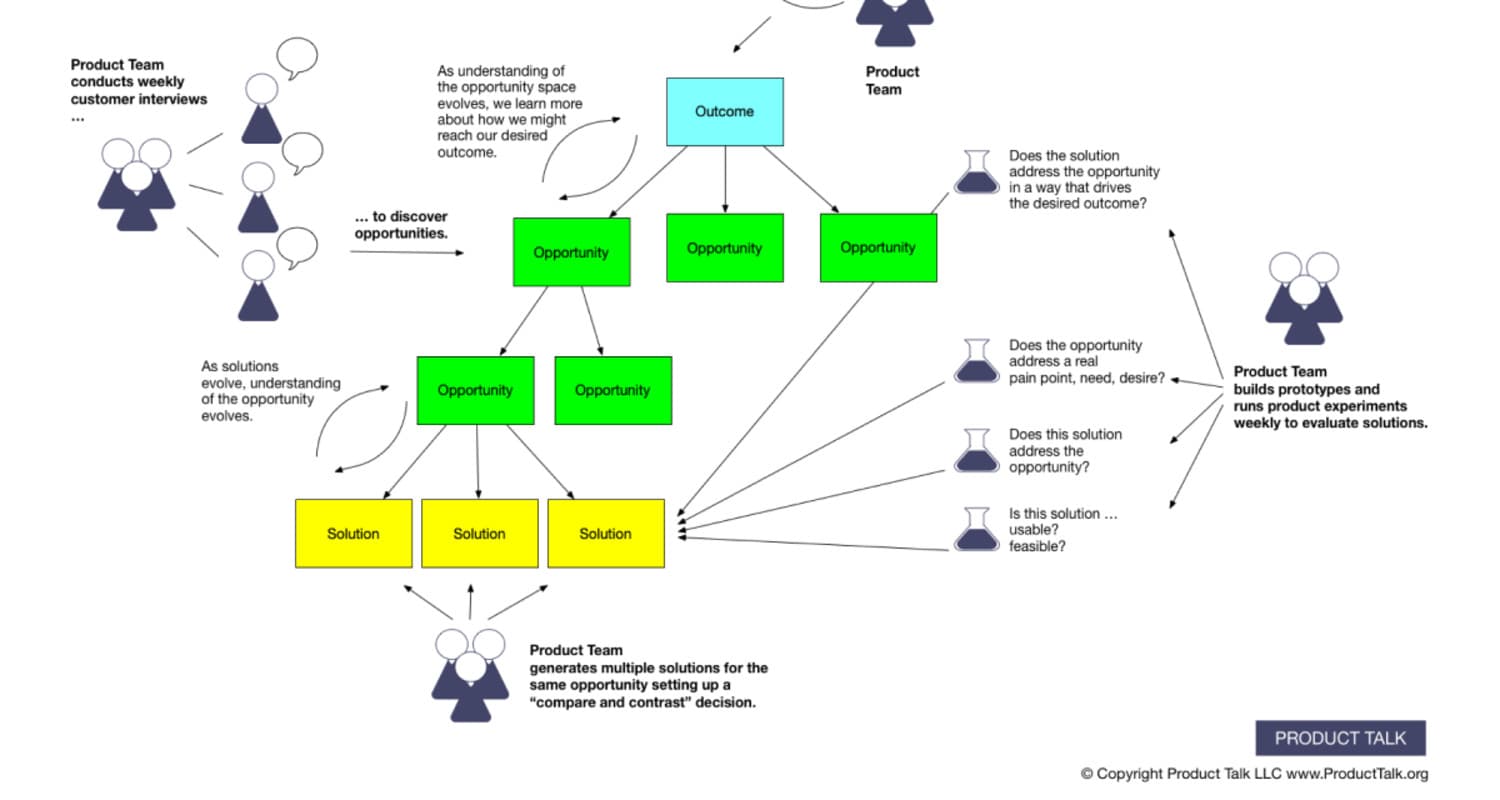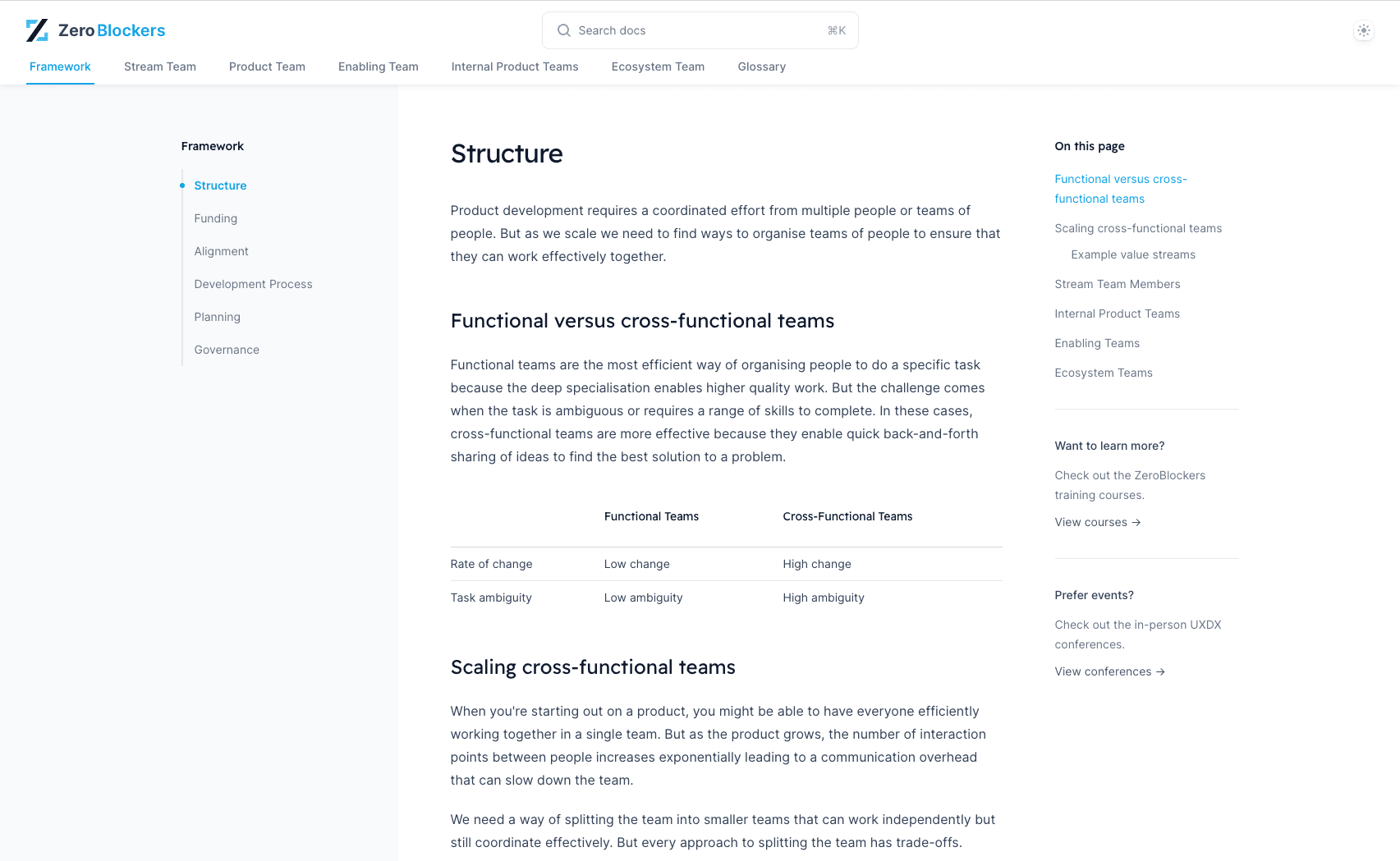Case StudyStream Team: Identifying Assumptions - Empowering Teams to Validate Assumptions
Many product teams struggle with developing solutions that effectively address real user needs due to unvalidated assumptions. This leads to inefficiencies, misaligned priorities, and suboptimal outcomes. ProductTalk, led by Teresa Torres, focuses on empowering teams to identify and validate these underlying assumptions to ensure they build impactful and effective solutions.

The Solution
ProductTalk helps teams implement a structured approach centered around identifying and validating underlying assumptions:
- Contextual Understanding:
- Guides teams to start by understanding the broader context of the problems they are addressing. This involves gathering data and insights from various stakeholders to get a comprehensive view.
- Encourages the use of historical data and customer feedback to identify potential assumptions underlying their solutions.
- Assumption Mapping:
- Conducts workshops and training sessions to teach teams how to map out all the assumptions underlying their proposed solutions. This includes assumptions about user behavior, market conditions, technological feasibility, and more.
- Helps teams create visual maps to organize and prioritize these assumptions based on their impact and uncertainty.
- Designing Experiments:
- Trains teams to design experiments that validate the most critical assumptions. These experiments are structured to test specific hypotheses derived from the assumptions.
- Instructs teams on methods such as A/B testing, user interviews, surveys, and prototypes to gather data and validate or refute assumptions.
- Iterative Validation:
- Promotes an iterative approach to validation, encouraging teams to continuously test and refine assumptions as new data is gathered.
- Ensures that validation becomes an ongoing part of the development process, rather than a one-time activity.
- Incorporating Feedback:
- Teaches teams how to regularly incorporate feedback from experiments into their product development cycles. This allows them to adjust their solutions based on validated insights.
- Fosters a culture of continuous learning and improvement, encouraging teams to be open to changing course based on new information.
Outcomes achieved
By helping teams focus on identifying and validating underlying assumptions, ProductTalk has facilitated significant improvements in their problem-solving and product development processes:
- Enhanced Solution Effectiveness:
- Teams are able to ensure their solutions are based on accurate and reliable information, leading to the development of more effective and impactful products.
- Avoidance of pursuing paths based on false assumptions saves time and resources.
- Improved Decision-Making:
- The process of mapping and validating assumptions provides a clear rationale for decision-making. Teams can prioritize efforts based on validated insights, leading to more informed and strategic choices.
- This approach reduces uncertainty and increases confidence in the solutions being developed.
- Higher Quality Products:
- By addressing the real needs and behaviors of users, the products developed are more aligned with customer expectations, leading to higher satisfaction and engagement.
- Continuous validation allows for ongoing refinement and enhancement of products, maintaining their relevance and effectiveness.
- Increased Team Alignment:
- The focus on assumptions and validation fosters better alignment within teams. Everyone has a shared understanding of the basis for their decisions and the direction of their efforts.
- This alignment improves collaboration and coordination across different functions and disciplines.
- Fostering a Learning Culture:
- The iterative validation process encourages a culture of learning and adaptability. Teams become more open to experimenting and adjusting based on new data, leading to continuous improvement.
- This culture supports innovation and responsiveness to changing market conditions and user needs.
